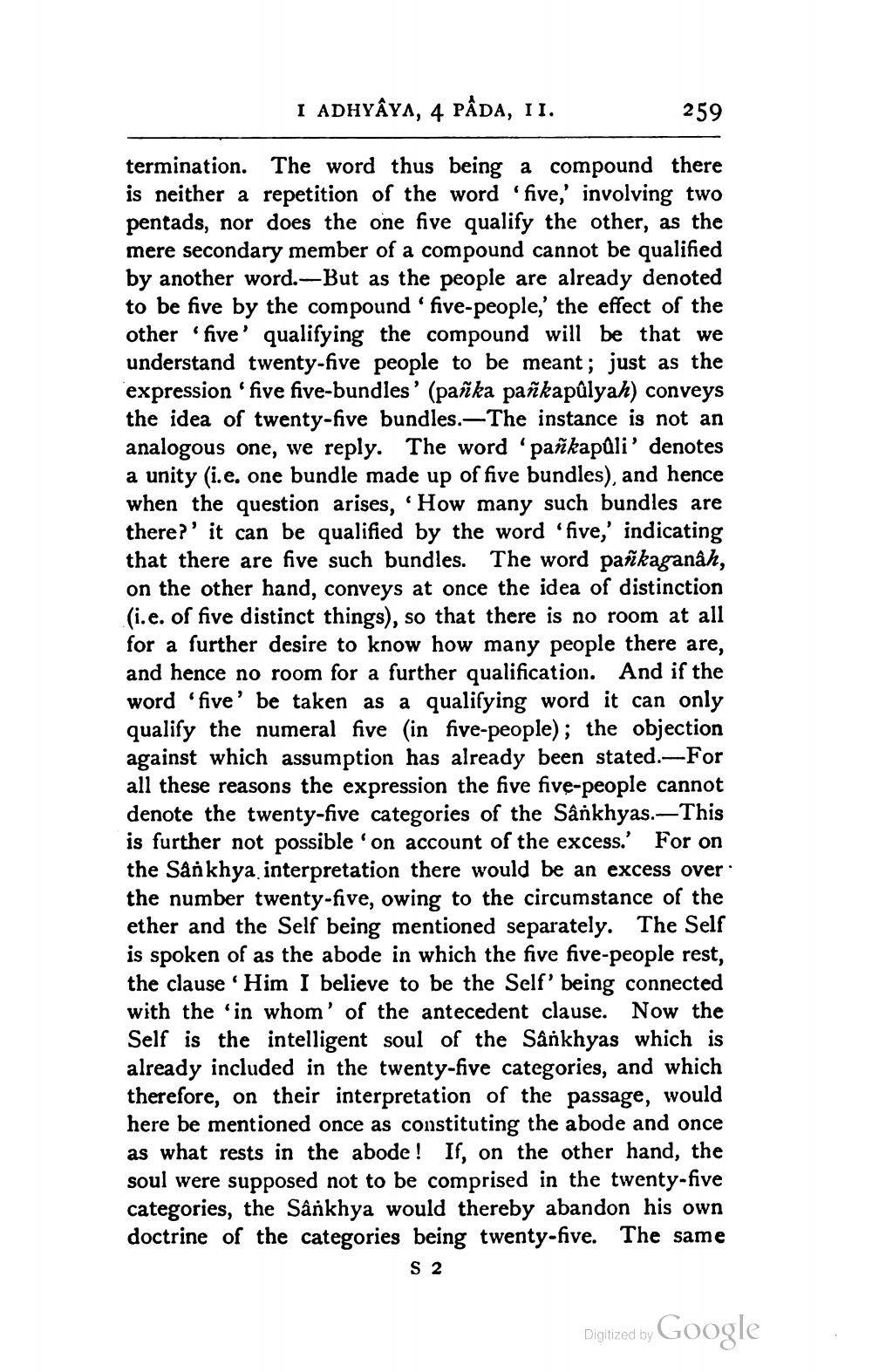________________
I ADHYAYA, 4 PÅDA, II.
259
termination. The word thus being a compound there is neither a repetition of the word 'five,' involving two pentads, nor does the one five qualify the other, as the mere secondary member of a compound cannot be qualified by another word.—But as the people are already denoted to be five by the compound ' five-people, the effect of the other 'five' qualifying the compound will be that we understand twenty-five people to be meant; just as the expression 'five five-bundles' (pañka pañkapûlyah) conveys the idea of twenty-five bundles. The instance is not an analogous one, we reply. The word 'pañkapali' denotes a unity (i.e. one bundle made up of five bundles), and hence when the question arises, 'How many such bundles are there?' it can be qualified by the word 'five,' indicating that there are five such bundles. The word paskaganah, on the other hand, conveys at once the idea of distinction (i.e. of five distinct things), so that there is no room at all for a further desire to know how many people there are, and hence no room for a further qualification. And if the word 'five' be taken as a qualifying word it can only qualify the numeral five in five-people); the objection against which assumption has already been stated.--For all these reasons the expression the five five-people cannot denote the twenty-five categories of the Sânkhyas.—This is further not possible on account of the excess.' For on the Sankhya interpretation there would be an excess over the number twenty-five, owing to the circumstance of the ether and the Self being mentioned separately. The Self is spoken of as the abode in which the five five-people rest, the clause Him I believe to be the Self' being connected with the 'in whom' of the antecedent clause. Now the Self is the intelligent soul of the Sankhyas which is already included in the twenty-five categories, and which therefore, on their interpretation of the passage, would here be mentioned once as constituting the abode and once as what rests in the abode! If, on the other hand, the soul were supposed not to be comprised in the twenty-five categories, the Sânkhya would thereby abandon his own doctrine of the categories being twenty-five. The same
S
2
Digitized by Google




